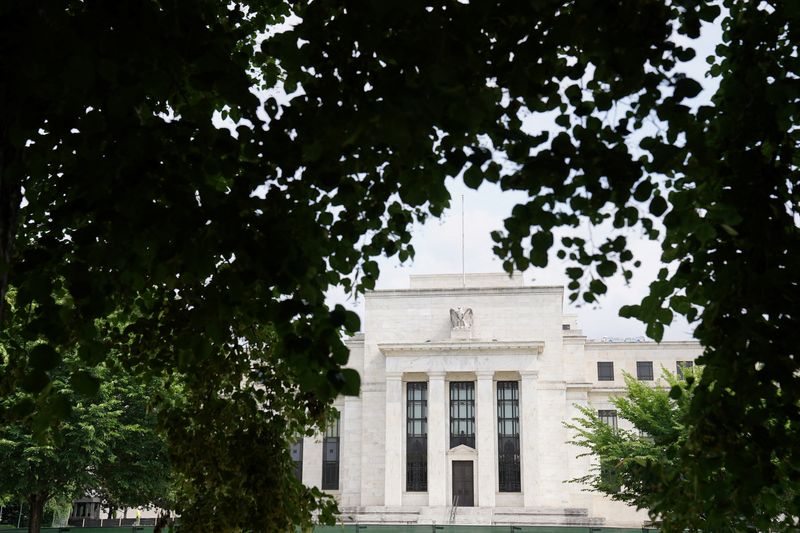Investing.com -- The Federal Reserve cut interest rates by 25 basis points on Thursday as ongoing progress against inflation and signs of slowing labor market continued to support the monetary policy easing cycle.
The Federal Open Market Committee, the FOMC, cut its benchmark rate by 25 bps to a range of 4.50% to 4.75%. The latest rate cut marked a downshift from the 50 basis point cut that kicked off the cutting cycle in September.
"Inflation has made progress toward the Committee's 2 percent objective but remains somewhat elevated," the Fed said in its monetary policy statement on Thursday.
The decision to cut rates for second time this year comes as a much weaker-than-expected October jobs report, released on Nov. 1, helped offset some concerns that the Fed could pause rate cuts following a string of mostly update economic data.
"A broad set of indicators suggest that conditions in the labor market are now less tight than just before the pandemic in 2019," Fed chairman Jerome Powell said in a press conference Thursday. "The labor market is not a source of significant inflationary pressures," he added.
The most recent measure of core personal consumption expenditure, or core PCE, index, the Fed's preferred inflation gauge, showed inflation in September was 2.7%, unchanged from the prior month, but slightly above economists estimates of 2.6%.
Too early to assess future economic impact from second Trump presidency
The Fed's decision arrives amid a major political shift as Donald Trump is now the president-elect after a decisive election victory. Powell said, however, that in the near term, the election "will have no effects on our policy decisions."
"We don't know what the timing and substance of any policy changes will be," Powell Powell added. "We don't know what the effects on the economy would be, specifically, whether and to what extent those policies would matter for the achievement of our goal, variables, maximum employment and price stability," the Fed chief added.
While the outcome of a second Trump administration isn't expected to affect the rate-cut trajectory for this year, the president-elect's potential policy measures including steeper tariffs, tax cuts and stricter immigration laws, are expected to prompt the Fed into slowing the the pace of rate cuts amid policy uncertainty and higher inflation.
"The resulting inflationary impact [from a second Trump presidential term] will likely mean the Fed takes longer to return policy to its neutral rate, with greater policy uncertainty leading the Fed to normalise more cautiously," Oxford Economics said in a recent note.
Markets are now pricing that the Fed will likely end rate cuts after delivering two more 25 bps rate cuts in the first half of 2025 , bringing the rate to the 3.75%-4% range. Prior to the election results, markets were expecting about 190 basis points of rate cuts by the end of next year.
